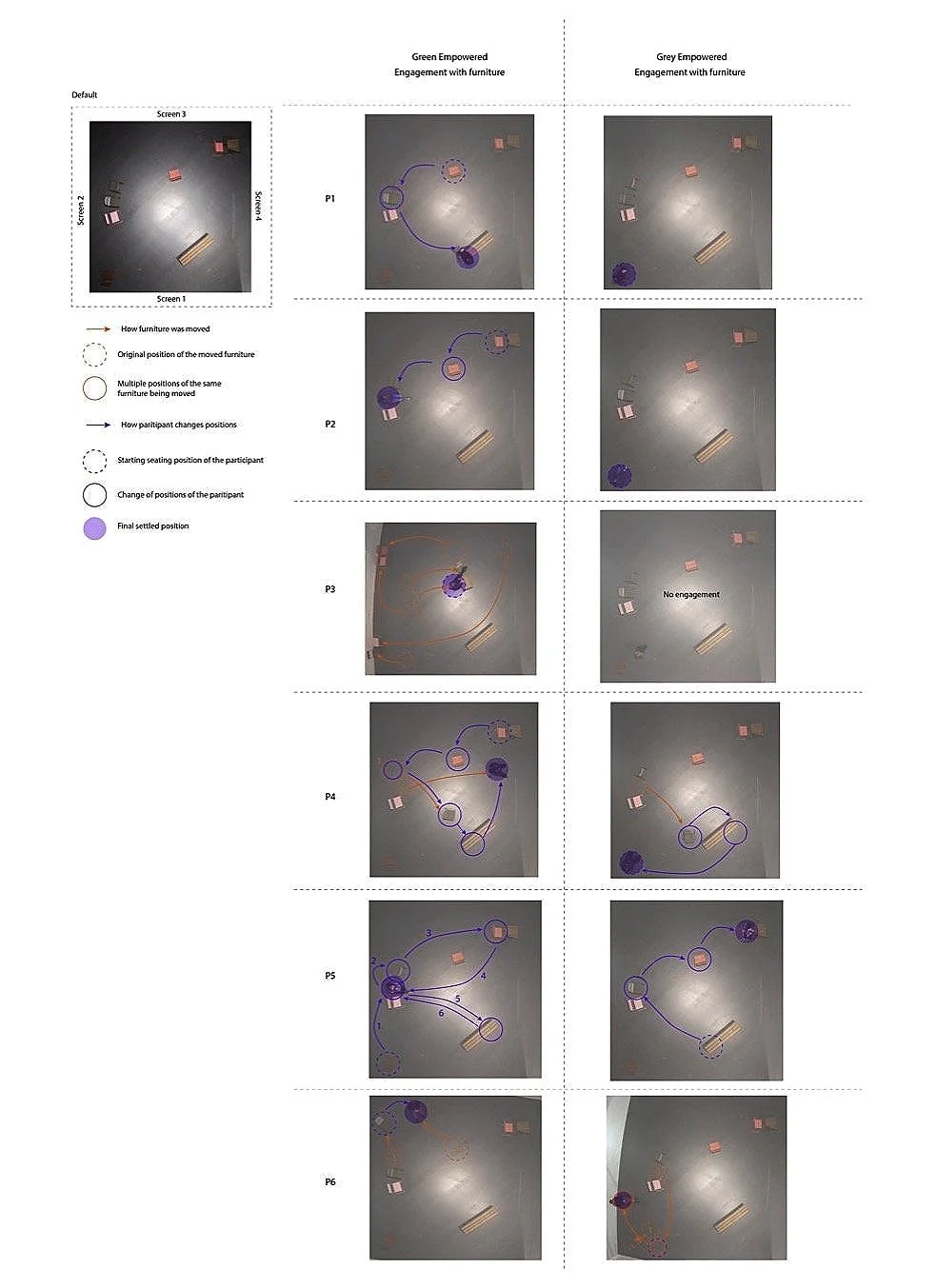Rethinking Urban Public Space:
An Examination of the impact of grey, green, and empowered public space design on stress and wellbeing
Research at Person-Environment-Activity Research Laboratoy (PEARL), UCL
Abstract
The world constantly strives for a better environment that improves the public’s wellbeing. There has been increasing evidence showing repeated and prolonged neurobiological effects of stress in urban environments and the risk of developing future diseases. Public space can facilitate spontaneous and ever-changing social interactions, serving as a crucial foundation for improving the public’s mental wellbeing.
This study investigates the impact of micro-level designs on mental wellbeing in urban public spaces. Using a mixed-methods approach, the study examines how empowering individuals to modify their seatings in simulated green and grey urban public spaces influences stress and comfort. Physiological data, including salivary cortisol measurements and eye-tracking gaze data, are collected along with behavioural observations and semi-structured interviews. Quantitative data was processed using MATLAB, while qualitative data was processed using an inductive approach and thematic analysis to understand participants’ perspectives.
The results from observation, eye tracking, cortisol and interview were contradictory. Some participants reported feeling relaxed in the grey space, whereas their gaze and cortisol data indicated restlessness and increased stress. In green space, furniture relocation is motivated by the desire to view their preferred sceneries, which improved their wellbeing. While in grey space, furniture relocation was motivated by avoiding discomfort and feelings of exposure. In addition, the results showed that movable furniture can contribute to cognitive load in the grey space. These findings indicate that modifiable seating in grey spaces should consider the potential or existing cognitive load caused by the environment for healthier urban design. Through people’s idiosyncratic interactions with public spaces, this research informs urban public design practice to promote inclusivity and enhance mental wellbeing in urban settings.
Keywords: Wellbeing, Urban design, Public Space, Stress, Social cohesion, Mixed Method Study, Outdoor Furniture, Space Ownership, Empowered Public Space
